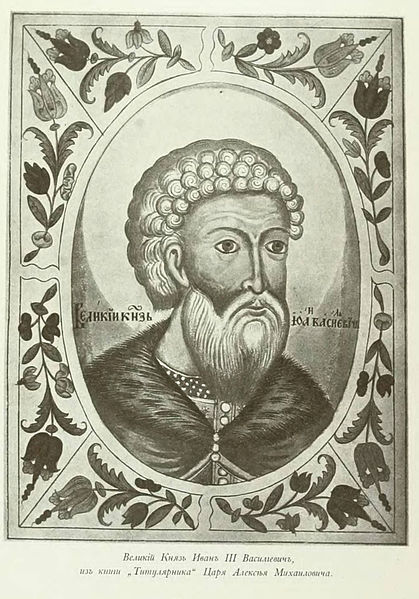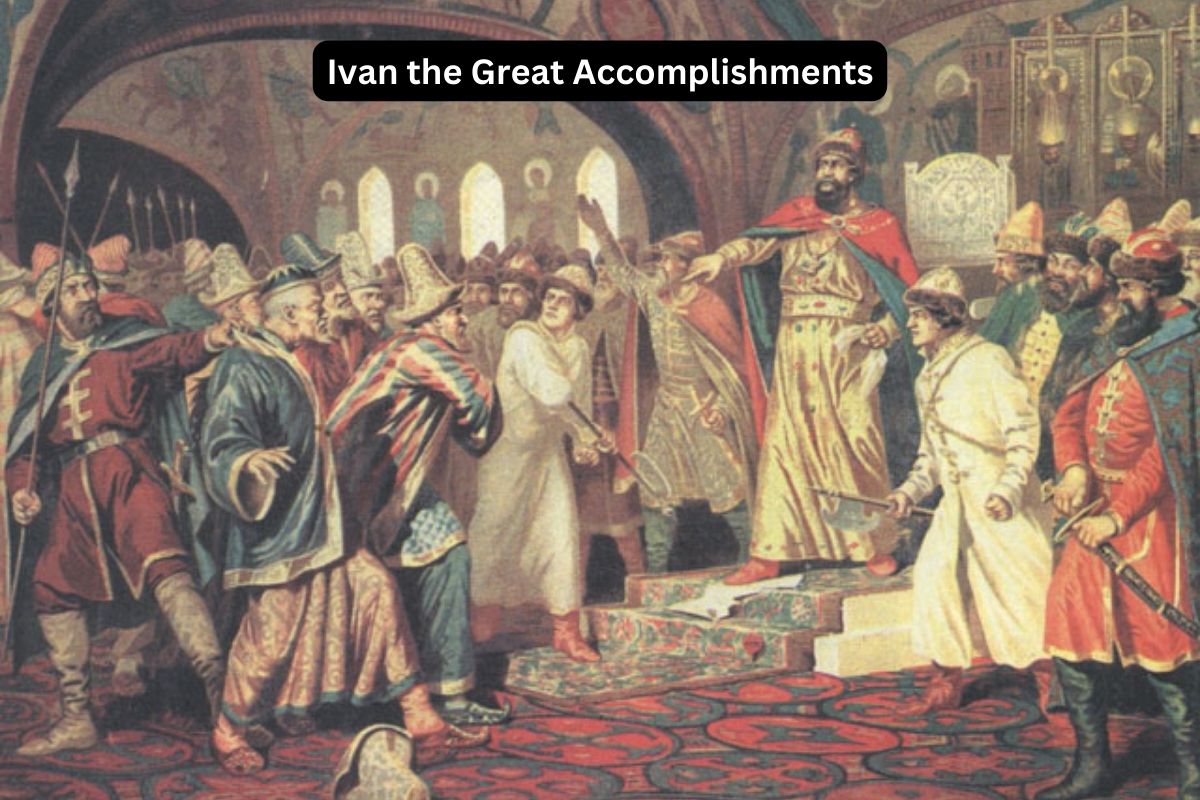Throughout Russian history, Ivan the Great stands as a towering figure whose reign shaped the course of the nation’s destiny.
From his ascension to the throne in 1462 until his death in 1505, Ivan III, also known as Ivan the Great of Moscow, engineered a transformative era characterized by territorial expansion, centralization of power, and cultural resurgence.
In this article, we delve into the remarkable accomplishments of Ivan the Great, exploring his pivotal role in consolidating Moscow’s authority, challenging Mongol dominance, and laying the foundation for the emergence of the Russian Empire.
Through a nuanced examination of Ivan’s military campaigns, political maneuvering, and cultural patronage, we gain insight into the enduring legacy of a ruler whose vision and leadership reshaped the landscape of medieval Russia.
Accomplishments of Ivan the Great
1. Expanded Moscow’s territory significantly
Ivan the Great initiated a series of military campaigns aimed at expanding the territory under Moscow’s control.
Also Read: Facts About Ivan the Great
Through strategic alliances, military conquests, and diplomatic maneuvering, Ivan brought numerous Russian principalities and regions into the fold of Moscow’s domain.
This expansion not only increased the size of Moscow’s territory but also enhanced its economic resources and political influence.

2. Centralized power in Moscow, reducing the influence of Mongols
Ivan worked tirelessly to consolidate power in Moscow and diminish the influence of the Mongols, who had long exerted control over Russia.
By strengthening the authority of the Grand Prince of Moscow and asserting Moscow’s independence from Mongol domination, Ivan laid the foundation for a more unified and centralized Russian state.
His efforts paved the way for the decline of Mongol influence in the region and the eventual liberation of Russia from Mongol rule.
3. Reconstructed and fortified Moscow, making it a powerful capital
Recognizing the importance of a strong capital city, Ivan embarked on an ambitious project to reconstruct and fortify Moscow. He rebuilt the Kremlin, the fortified complex at the heart of Moscow, strengthening its defenses and enhancing its symbolic significance as the seat of Russian power.
Also Read: Ivan the Terrible Facts
Additionally, Ivan invested in the construction of churches, palaces, and other infrastructure projects, transforming Moscow into a bustling center of politics, commerce, and culture.
This revitalization of Moscow not only bolstered the city’s defenses against external threats but also solidified its status as the preeminent political and cultural hub of Russia.
4. Stopped paying tribute to the Golden Horde, asserting independence
Ivan the Great decisively challenged the authority of the Golden Horde, the Mongol khanate that had long exacted tribute from Russian principalities. By refusing to pay tribute, Ivan asserted Moscow’s independence and sovereignty.
This bold move marked a significant shift in the balance of power in the region, weakening the influence of the Golden Horde and paving the way for Moscow to emerge as the dominant political force in Russia.

5. Adopted the title of “Tsar,” asserting imperial authority
Ivan was the first Russian ruler to officially adopt the title of “Tsar” (or “Czar”), derived from the Latin “Caesar.” By assuming this prestigious title, Ivan asserted his claim to imperial authority and presented himself as the rightful successor to the Byzantine Emperors.
This symbolic gesture signaled Moscow’s aspirations to establish itself as the center of Orthodox Christianity and the heir to the legacy of the Eastern Roman Empire, further enhancing Ivan’s prestige and legitimacy as a ruler.
6. Formed strategic marriage alliances with European royal families
Ivan recognized the importance of forging diplomatic ties with European powers to strengthen Moscow’s position on the international stage. To this end, he arranged strategic marriage alliances with prominent European royal families.
One of the most notable unions was the marriage of his son Ivan IV (Ivan the Terrible) to Anastasia Romanovna, a member of the influential Romanov dynasty.
These marriage alliances not only cemented diplomatic relations between Moscow and European powers but also bolstered Moscow’s legitimacy and prestige as a major player in European politics.
7. Initiated efforts to codify Russian law
Ivan III recognized the need for a more structured and uniform legal system to govern his expanding realm. To achieve this, he initiated efforts to codify Russian law, aiming to create a standardized set of legal principles and regulations.
This codification process helped centralize authority by establishing a common legal framework across the various territories under Moscow’s control.
Although the full codification of Russian law would not be completed until later reigns, Ivan’s efforts laid the groundwork for the development of a more coherent legal system in Russia.

8. Supported arts and culture, inviting Italian craftsmen
Ivan the Great was a patron of the arts and culture, recognizing their importance in enhancing Moscow’s prestige and cultural standing. To this end, he invited skilled craftsmen and artists from Italy, renowned for their expertise in architecture, painting, and sculpture, to work in Moscow.
These Italian artisans made significant contributions to the architectural and artistic development of Moscow, leaving their mark on landmarks such as the Kremlin and cathedrals. Ivan’s support for the arts helped elevate Moscow as a center of culture and creativity in medieval Russia.
9. Consolidated the authority of the Russian Orthodox Church
Ivan III played a crucial role in consolidating the authority of the Russian Orthodox Church and promoting its influence within his realm. He supported the church financially and granted it privileges and exemptions, strengthening its institutional power.
Ivan also intervened in church affairs, asserting control over the appointment of high-ranking clergy and using the church as a tool to legitimize his rule. By aligning himself closely with the church, Ivan enhanced his own authority and bolstered the religious unity of his realm.
10. Laid the groundwork for the emergence of the Russian Empire
Ivan the Great’s reign laid the groundwork for the emergence of the Russian Empire. His accomplishments in expanding Moscow’s territory, centralizing power, and promoting Moscow’s status as a political and cultural center were crucial in shaping the course of Russian history.
By strengthening the foundations of the Russian state and asserting Moscow’s dominance over neighboring principalities, Ivan set the stage for the subsequent expansion and consolidation of Russian power under his successors, ultimately leading to the establishment of the Russian Empire in the centuries that followed.
